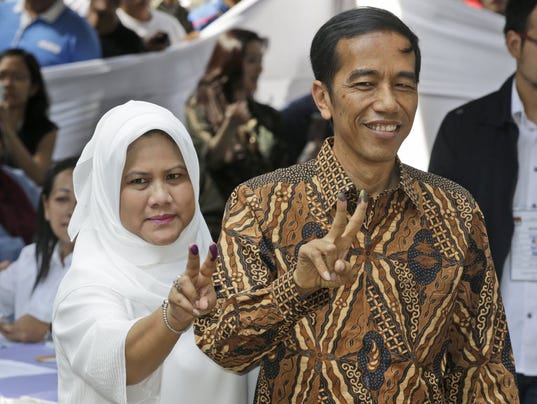
Maxim Zmeyev/Reuters
My choice for 2014 world politics Person of the Year is Vladimir Putin. Of
course, my selection isn’t because he was a good guy. On the other hand, my
choice of Putin isn’t solely because he was a bad guy, though, yes, that’s part of
the story. Instead, I chose Putin because, in my view, he was the most
newsworthy actor in world politics in 2014, both in terms of the
importance of his actions and policies as well as the length of time they have dominated the news. Russia and IR watchers more generally
have focused heaps of attention on him throughout the entire year. Just consider these series of events, all of which were orchestrated by
Putin and his cabal, which stretch from February to December 2014: The Winter
Olympics, Russia’s capture of Crimea, the unrest in Eastern Ukraine, the
finalization of Putin’s planned Eurasian Economic Union, the collapse of the
Russian Ruble.
Certainly, Putin’s most profound move was to create
instability in Ukraine. Under his watch, Russia has effectively dismembered
Ukraine. Russia has seized Crimea and played a huge part in fomenting a
resistance in Eastern Ukraine, leaving Ukraine a shell of what it once was. Putin’s
excellent adventures in Ukraine have created another Russian-made frozen conflict that
has no end in sight. They patently violate international law and norms on
sovereignty and self-determination. They potentially send a signal to other
would-be aggressors, such as China, that conquest is permissible in world
politics. They have also sent shivers throughout neighboring countries, such as Kazakhstan,
which worry that they could be next on Putin’s hit list.
Russian actions in Ukraine were motivated by several
factors, including Putin’s narcissism and ego and his quest to restore Russia
as a major world power. Arguably, the most consequential factor has been Putin’s
desire to show the Western powers, particularly the U.S., who the real boss is.
In Putin’s view, Russia has languished for the past two plus
decades as a humiliated, defanged country, and the main culprit is America. Russia lost the cold war and lost it
on American terms. After all, Germany unified and became a member of the
Western camp, and the EU and NATO, because of U.S. hegemonic ambitions, has expanded into Central and Eastern Europe,
the Soviets old stomping grounds. Throughout the 1990s and 2000s, Russia has
had to suffer the indignity of seeing the U.S., as the sole dominant power,
throw its weight around the world, starting wars around the world, even going
so far as to use military bases of former Soviet states. More recently, the Western-led
invasion of Libya exacerbated these feelings of humiliation: Russia never
agreed to the ouster to Gaddafi, only to the assistance and protection of Libyans thought
to be in harm’s way.
Prior to Putin’s shenanigans in the spring of 2014, decision-making
calculus was shaped by his perception of Western resolve and credibility.
Although those two terms are widely overused in policy and academic analysis,
they are appropriate here. Putin saw the U.S. and its NATO partners as weak,
reluctant to confront him head-on. Western criticisms of Russian behavior in
Ukraine would remain in word only; the West would do little follow-up to punish
Russia. As a result, because of few fears of external punishment, Putin believed there was little
downside to challenging EU countries and the U.S. He also received a domestic benefit
from asserting himself in Ukraine: challenging the Washington plays well internally
in Russia, as it capitalizes on longstanding negative attitudes toward the U.S. and
stimulates Russian nationalism.
The major narrative in the West, especially in the U.S., by
the summer of 2014 was that Putin won the battle over Ukraine. American pundits
were falling over themselves in lavishing praise on Putin. Putin was a
strategic genius who boxed in the West, which was flummoxed to come up with a
strong response to Russia’s moves. EU countries didn’t want to impose harsh
sanctions on Russia, because they desperately need Russia for energy supplies.
President Obama, knowing well that Ukraine isn’t an American national priority and having his hands full with turmoil and violence in the Middle East,
wasn’t inclined to demonstrate much leadership on the matters there. The
punchline was that the world simply had to accept the fact of a resurgent,
aggressive Russia, led by a master-level strategic thinker and player.
Ah, but times have changed. At this point, the big question
now is whether Putin has overplayed his hand. It’s very likely he has. The
markets have responded to Russian aggression and they’re not happy. Money has
been flying out of the country and the Russian Ruble is virtually worthless. Oil
prices, which Putin relies on so much for his continued rule and muscle flexing,
have fallen through the floor. But not only that, Putin, or his successors,
must eventually come to grips with the idea that Ukraine will probably become a
full-fledged member of the West. Putin has alienated many ethnic Ukrainians,
who now no longer want to be under his thumb. And a significant number of
ethnic Russian Ukrainians living in Crimea are now Russians, as a result of the
land grab, which could prove to tip the balance once and for all in the ongoing
debate over Ukraine’s future: lean West or East?
















